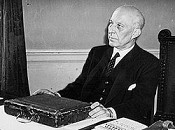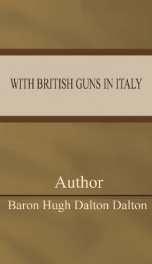Dalton Hugh Dalton Baron

Edward Hugh John Neale Dalton, Baron Dalton PC, generally known as Hugh Dalton (16 August 1887 – 13 February 1962) was a British Labour Party politician, and Chancellor of the Exchequer from 1945 to 1947. He was implicated in a political scandal involving budget leaks. He was born in Neath in Wales: his father, Canon John Neale Dalton was chaplain to Queen Victoria and tutor to the future King George V of the United Kingdom. Dalton was educated at the independent Summer Fields School in Summertown, a suburb of Oxford, and then at the independent Eton College, in the small town of Eton in Berkshire, where he was head of his house, but was disappointed not to be elected to "Pop". After leaving school he went up to King's College, Cambridge, where his socialist views, then very rare amongst undergraduates, earned him the nickname "Comrade Hugh". He made three unsuccessful attempts at the Secretaryship of the Cambridge Union (the only office generally then contested). He went on to further study at the London School of Economics and the Middle Temple. During World War I, he was called up into the Army Service Corps, later transferring to the Royal Artillery. He served as a Lieutenant on the French and Italian Fronts where he was awarded the Italian decoration, the Medaglia di bronzo al valor militare in recognition of his 'contempt for danger' during the retreat from Caporetto; he later wrote a memoir of the war called With British Guns in Italy. Following demobilisation he returned to the LSE and the University of London as a lecturer, where he was awarded a PhD for a thesis on the principles of public finance in 1920; .[1] Dalton stood unsuccessfully for Parliament four times: at the Cambridge by-election, 1922, in Maidstone at the 1922 general election, in Cardiff East at the 1923 general election, and the Holland with Boston by-election, 1924, before entering Parliament for Peckham at the 1924 general election. At the 1929 general election, he succeeded his wife as Labour MP for Bishop Auckland in 1929 and became a junior Foreign Office minister in the second Labour Government. As with most other Labour MPs, he lost his seat in 1931, though he was re-elected in 1935. During the World War II coalition, Winston Churchill appointed him Minister of Economic Warfare from 1940 and he established the Special Operations Executive, and was later a member of the executive committee of the Political Warfare Executive. He became President of the Board of Trade in 1942; the future Labour leader Hugh Gaitskell, drafted into the Civil Service during the war, was his Principal Private Secretary. Although a Labour politician Dalton was a strong supporter of Churchill during the crisis of May, 1940, when Lord Halifax and other Conservative supporters of appeasement in the war cabinet urged a compromise peace. After the Labour victory in the 1945 general election, Dalton had been expected to become Foreign Secretary, but instead the job was given to Ernest Bevin. Dalton became Chancellor of the Exchequer and nationalised the Bank of England in 1946. Alongside Clement Attlee, Ernest Bevin, Herbert Morrison and Stafford Cripps Dalton was initially seen as one of the "Big Five" of the Labour Government. During this time Britain, whose overseas investments had been sold to pay for the war (thus losing Britain their income), was suffering severe balance of payments problems to pay for the effort of maintaining a global military presence. The American loan negotiated by John Maynard Keynes in 1946 was soon exhausted, and by 1947 rationing had to be tightened and the convertibility of the pound suspended. In the atmosphere of crisis Herbert Morrison and Stafford Cripps intrigued to replace Clement Attlee with Ernest Bevin as Prime Minister; Bevin refused to play along and Attlee bought off Cripps by giving him Morrison's responsibilities for economic planning. Ironically, of the "Big Five" it was to be Dalton who ultimately fell victim to the events of that year. Dalton was under great strain. Walking into the House of Commons to give the autumn 1947 Budget speech, he made an off-the-cuff remark to a journalist, telling him of some of the tax changes in the budget, which was printed in the early edition of the evening papers before he had completed his speech, and whilst the stock market was still open. This led to his resignation for leaking a Budget secret; he was succeeded by Stafford Cripps. Though initially implicated in the allegations that led to the Lynskey tribunal in 1948, he was ultimately exonerated. In 1948 he returned to the Cabinet as Chancellor of the Duchy of Lancaster, then became Minister of Town and Country Planning in 1950, renamed as Minister of Local Government and Planning in 1951. He still had the ear of the Prime Minister, and enjoyed promoting the careers of candidates with potential, but was no longer a major political player as he had been until 1947. He left government after the 1951 General Election. He was president of the Ramblers' Association from 1948 to 1950 and Master of the Drapers' Company in 1958-59. He was made a life peer as Baron Dalton, of Forest and Friton in the County Palatine of Durham in 1960. Although Dalton was married and had a daughter who died in infancy in the early 1920s, his biographer Ben Pimlott suggested that he was a repressed homosexual. As a young man, Dalton was close to the poet Rupert Brooke, who died of disease on his way to Gallipoli in 1915, and in later years, he acted as a mentor to various handsome young men - who were almost uniformly heterosexual. One notable beneficiary of Dalton's support was Anthony Crosland, whom Dalton talent-spotted at the Oxford Union in 1946 and whose selection for a winnable seat for the 1950 General Election Dalton later helped to arrange. Another was James Callaghan. His papers, including his diaries, are held at the London School of Economics Library. Dalton substantially expanded Max Otto Lorenz's work in the measurement of income inequality, offering both an expanded array of techniques but also a set of principles by which to comprehend shifts in an income distribution, thereby providing a more compelling theoretical basis for understanding relationships between incomes (1920). Following a suggestion by Pigou (1912, p. 24), Dalton proposed the condition that a transfer of income from a richer to a poorer person, so long as that transfer does not reverse the ranking of the two, will result in greater equity (Dalton, p. 351). This principle has come to be known as the Pigou-Dalton principle (see, e.g., Amartya Sen, 1973). Dalton offered a theoretical proposition of a positive functional relationship between income and economic welfare, stating that economic welfare increases at an exponentially decreasing rate with increased income, leading to the conclusion that maximum social welfare is achievable only when all incomes are equal (Rogers, 2004).
do you like this author?
What readers are saying
What do you think? Write your own comment on this book!
write a commentWhat readers are saying
What do you think? Write your own comment on this author!
write a commentBook list

With British Guns in ItalyA Tribute to Italian Achievement
Series:
Unknown
Year:
Unknown
Raiting:
5/5
Show more
add to favoritesadd In favorites

With British Guns in Italy
Series:
Unknown
Year:
Unknown
Raiting:
3.5/5
Anglo-Italian friendship has been one of the few unchanging facts inmodern international relations. Since the French Revolution, in thebellicose whirligig of history and of the old diplomacy's reckless dancewith death, British troops have fought in turn against Frenchmen andGermans, against Russians and Austrians, against Bulgarians, Turks andChinamen, against Boers, and even against Americans, but never, exceptfor a handful of Napoleonic conscripts, against Italians. British andItalian troops, on the other hand, fought side by side in the Crimea,and, in the war which has just ended, have renewed and extended theircomradeship in arms in Austria and Italy, in France and in the Balkans.
Show more
add to favoritesadd In favorites
Book list

With British Guns in ItalyA Tribute to Italian Achievement
Series:
Unknown
Year:
Unknown
Raiting:
5/5
Show more
add to favoritesadd In favorites

With British Guns in Italy
Series:
Unknown
Year:
Unknown
Raiting:
3.5/5
Anglo-Italian friendship has been one of the few unchanging facts inmodern international relations. Since the French Revolution, in thebellicose whirligig of history and of the old diplomacy's reckless dancewith death, British troops have fought in turn against Frenchmen andGermans, against Russians and Austrians, against Bulgarians, Turks andChinamen, against Boers, and even against Americans, but never, exceptfor a handful of Napoleonic conscripts, against Italians. British andItalian troops, on the other hand, fought side by side in the Crimea,and, in the war which has just ended, have renewed and extended theircomradeship in arms in Austria and Italy, in France and in the Balkans.
Show more
add to favoritesadd In favorites
What readers are saying
What do you think? Write your own comment on this author!
write a commentif you like Dalton Hugh Dalton Baron try:
readers also enjoyed
What readers are saying
What do you think? Write your own comment on this author!
write a commentif you like Dalton Hugh Dalton Baron try:
readers also enjoyed
Do you want to exchange books? It’s EASY!
Get registered and find other users who want to give their favourite books to good hands!

